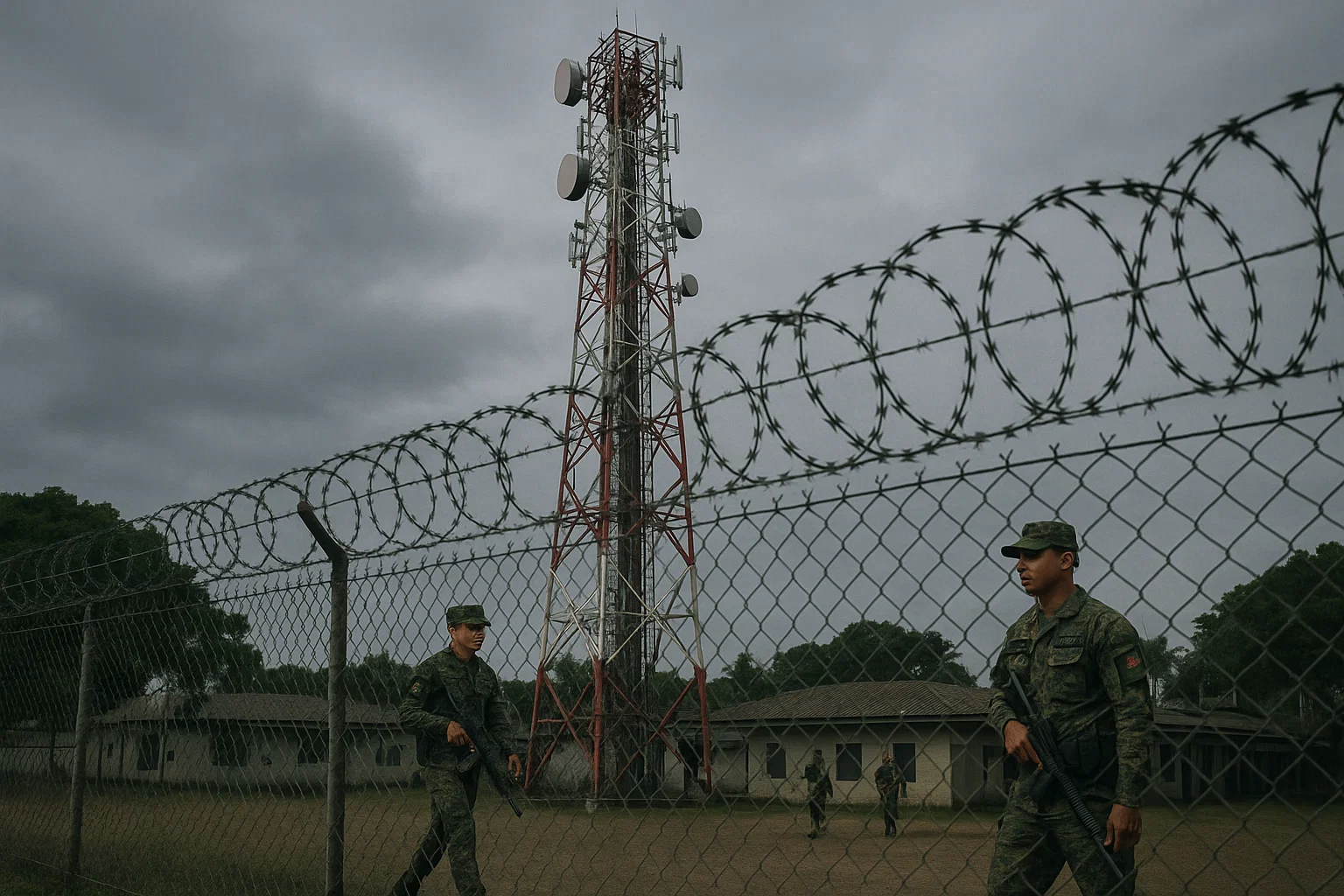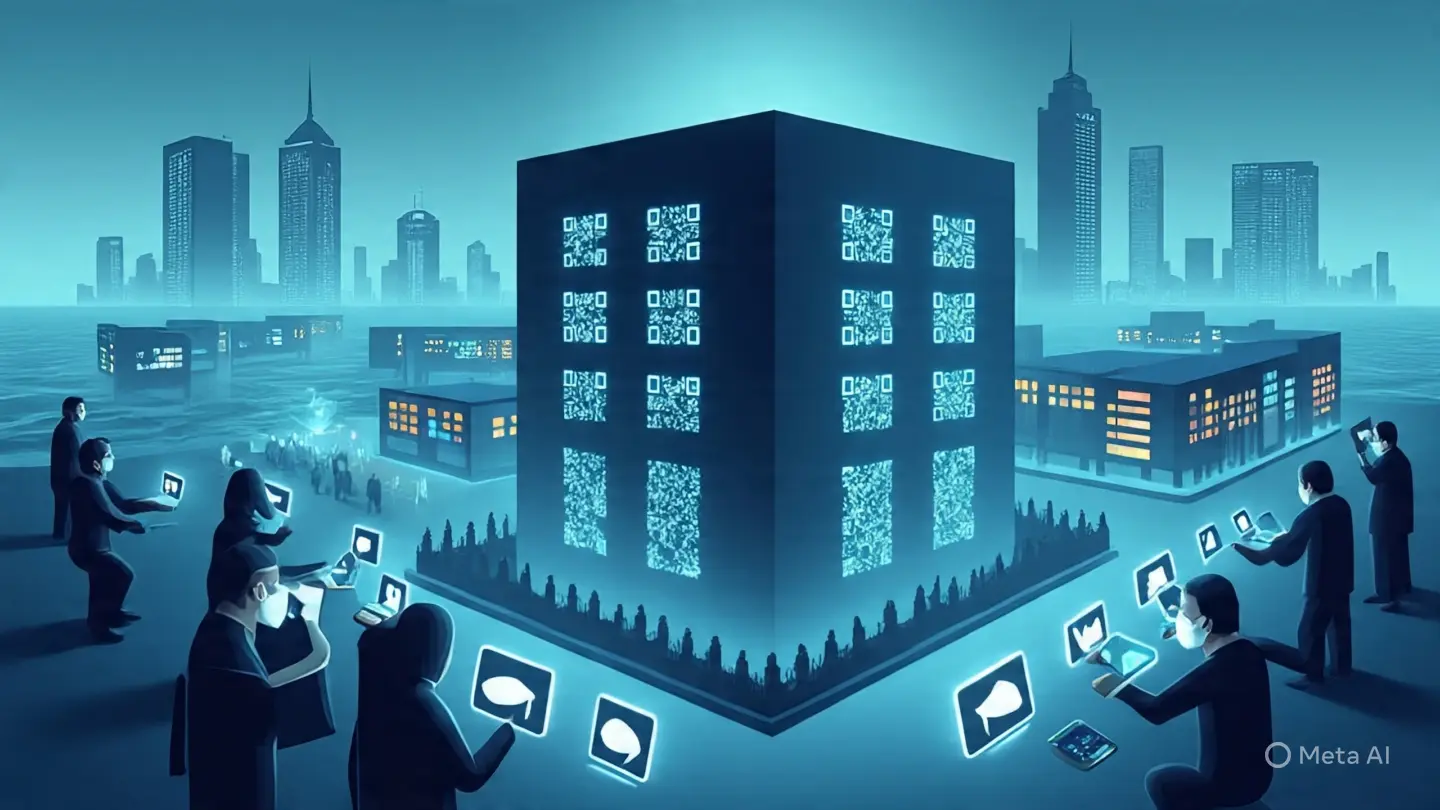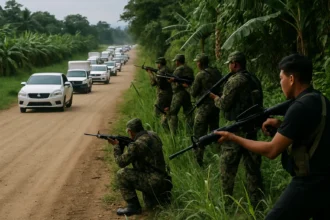The arrival of Dito Telecommunity cell towers inside Philippine military camps has sparked one of the most heated debates in recent years about national security and technology. On one side, officials tout improved connectivity and competitive telecom markets. On the other, critics warn of possible espionage risks given the company’s Chinese ownership stake.
- 📜 Overview of Dito Telecommunity and Its Investors
- 🪖 Government Approval for Towers Inside Military Camps
- 🕵️ Espionage Fears Linked to Chinese Ownership
- 💻 Technical Possibilities for Surveillance via Telco Infrastructure
- 🛡 Government Reassurances and Security Protocols
- 🎖 Reactions from the Military and Intelligence Community
- 🌍 Similar Controversies in Other Countries
- 📉 Impact on Public Trust in Telecom Companies
- ✅ Pros of Allowing Dito in Military Camps
- ❌ Cons and Security Risks
- 🔐 Alternatives and Safeguards
- ⚖ The Fine Line Between Development and Security Risk
- ❓ Frequently Asked Questions (FAQ)
- Final Reflection 🕯
This investigative feature examines every angle of the controversy — from corporate structure and technical vulnerabilities to public trust and global parallels.
📜 Overview of Dito Telecommunity and Its Investors
Dito Telecommunity launched in 2018 as the Philippines’ third major telecom operator, breaking the long-standing duopoly of PLDT and Globe. It is a joint venture between Udenna Corporation, controlled by businessman Dennis Uy, and China Telecom, a state-owned Chinese telecommunications giant.
Table 1: Dito Ownership Breakdown and Key Stakeholders
| Stakeholder | Ownership Share | Country | Notes |
|---|---|---|---|
| Udenna Corporation | 60% | Philippines | Owned by Dennis Uy, politically connected to the Duterte administration |
| China Telecom | 40% | China | State-owned, answerable to Chinese national intelligence laws |
The 40% stake by a state-owned Chinese firm has drawn scrutiny because Chinese law compels companies to support state intelligence operations when required. While the Philippine government insists safeguards exist, the ownership structure alone is enough to fuel suspicion.
🪖 Government Approval for Towers Inside Military Camps
In 2019, the Armed Forces of the Philippines signed agreements allowing Dito to build telecom towers inside military bases. Supporters argue that having towers inside secured areas allows better oversight compared to placing them in civilian communities where access control is weaker.
The government has emphasized that these towers will not connect to sensitive AFP communications and will be subject to access restrictions. However, experts note that physical location security is only part of the equation — backend systems, software controls, and data routing remain critical vulnerabilities.
🕵️ Espionage Fears Linked to Chinese Ownership
The main security concern is straightforward: China Telecom is not a private company — it is owned by the Chinese state, which enforces laws obligating companies to assist intelligence agencies.
Critics fear that through remote access or network manipulation, towers could be used to:
-
Monitor communication patterns around military sites.
-
Capture metadata from civilian and non-secure military devices.
-
Serve as access points for broader cyber intrusion attempts.
The Philippines has no publicly disclosed independent verification system to ensure such capabilities are absent.
💻 Technical Possibilities for Surveillance via Telco Infrastructure
How Towers Could Be Exploited:
-
Signal Interception: Capturing unencrypted calls and messages within range.
-
Metadata Harvesting: Logging locations, call durations, and device identifiers.
-
Network Mapping: Identifying nearby secure systems for later targeting.
-
Supply-Chain Exploits: Installing modified hardware or software updates.
Cybersecurity experts stress that even if towers are clean at installation, future updates or maintenance could introduce vulnerabilities without detection unless rigorous inspection is ongoing.
🛡 Government Reassurances and Security Protocols
The Department of National Defense states:
-
Dito’s towers will not interface with AFP command networks.
-
Installations will be physically secured within camp perimeters.
-
Periodic audits will verify compliance.
However, these audits are conducted internally without independent oversight — a sticking point for critics who want third-party cybersecurity testing.
🎖 Reactions from the Military and Intelligence Community
Opinions within the AFP are divided:
-
Some officers value the better connectivity for coordination during disaster response and joint exercises.
-
Others quietly express concerns that any foreign-linked telecom presence in bases is inherently risky.
Several retired generals have urged conditional deployment, allowing towers only with continuous monitoring and immediate removal clauses if security issues arise.
🌍 Similar Controversies in Other Countries
Table 2: Security Incidents Involving Telcos Worldwide
| Country | Company | Issue | Outcome |
|---|---|---|---|
| USA | Huawei | Alleged backdoors in equipment | Banned from 5G networks |
| Australia | Huawei/ZTE | Espionage risk | Banned from critical infrastructure |
| UK | Huawei | Supply-chain vulnerabilities | Ordered removal from 5G by 2027 |
| India | Huawei/ZTE | Border tensions with China | Phased out from government networks |
These global cases show that security debates around foreign-linked telcos are not unique to the Philippines.
📉 Impact on Public Trust in Telecom Companies
Public trust is a critical factor in telecom success. While some Filipinos welcome Dito’s competitive pricing and coverage expansion, others avoid it entirely due to security fears.
A lack of transparent, independent security certification for all telcos — not just Dito — fuels a broader national skepticism toward infrastructure projects with foreign involvement.
✅ Pros of Allowing Dito in Military Camps
-
Improved network coverage for both civilian and disaster response needs.
-
Easier security monitoring of telecom facilities inside camps.
-
Increased market competition, potentially lowering prices.
-
Infrastructure development in remote areas.
❌ Cons and Security Risks
-
Potential intelligence-gathering from strategic locations.
-
Dependence on foreign-linked systems for national communications.
-
Public perception of compromised military security.
-
No independent verification mechanisms for equipment safety.
🔐 Alternatives and Safeguards
Policy Recommendations:
-
Require independent third-party cybersecurity audits of all telecom systems in camps.
-
Mandate Philippine-controlled data routing for sensitive zones.
-
Establish joint civilian-military oversight panels.
-
Implement automatic review clauses every two years.
⚖ The Fine Line Between Development and Security Risk
The Dito towers debate is a test of how the Philippines balances development goals with security imperatives. Access to faster, cheaper internet should not come at the expense of national sovereignty.
Until there is transparent verification and continuous monitoring, the risk-versus-benefit calculation remains unresolved.
❓ Frequently Asked Questions (FAQ)
Q1: Has espionage ever been proven in Dito’s operations?
No confirmed public evidence shows Dito engaging in espionage. However, the 40% Chinese state ownership means the risk is theoretically possible under Chinese national security law. This is why independent monitoring is a central demand from security advocates.
Q2: Can military camps refuse Dito towers?
Yes. Military base commanders can decline hosting if they assess risks as too high. Some local leaders have expressed willingness to refuse, especially if independent audits are not guaranteed.
Q3: How are these towers monitored for security compliance?
According to the DND, internal audits are done, but these lack public transparency. Without independent verification, the public cannot confirm whether inspections include cybersecurity penetration testing.
Q4: Could other telcos pose the same risks?
Yes. Any telecom provider with insecure systems or foreign intelligence ties could be exploited. This is why some experts advocate for a universal national telecom security audit system.
Q5: What makes Chinese involvement especially controversial?
China’s 2017 National Intelligence Law obliges all Chinese entities to assist in state intelligence efforts. This creates a structural risk regardless of the stated intentions of the company.
Q6: Do telco towers themselves store sensitive data?
Not typically — but they are access points to larger networks. With the right tools, they could be used to intercept signals or map secure systems in range.
Q7: Has any other country banned China Telecom?
China Telecom has faced restrictions in the U.S. for national security reasons. Several countries treat its equipment with heightened caution or outright bans in sensitive sectors.
Q8: What safeguards could lower espionage risk?
Regular third-party audits, encryption mandates, and localized data routing are key. A joint oversight committee involving civilian, military, and independent cybersecurity experts could ensure ongoing compliance.
Q9: Are there economic downsides to banning Dito from camps?
Yes. It could slow infrastructure rollout, especially in underserved regions, and reduce competitive pricing pressures on existing telcos.
Q10: Is the public entitled to know audit results?
Yes — transparency builds trust. Releasing non-sensitive portions of security audits could help the public make informed choices without compromising operational secrecy.
Final Reflection 🕯
The real question for the Philippines is whether faster internet is worth the potential security gamble. In a world where data is power, the line between connectivity and vulnerability is razor-thin.
So, is it worth it? That’s for the nation — and its people — to decide.




